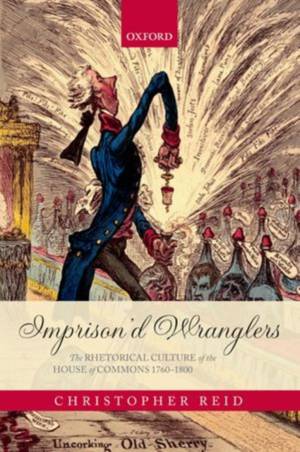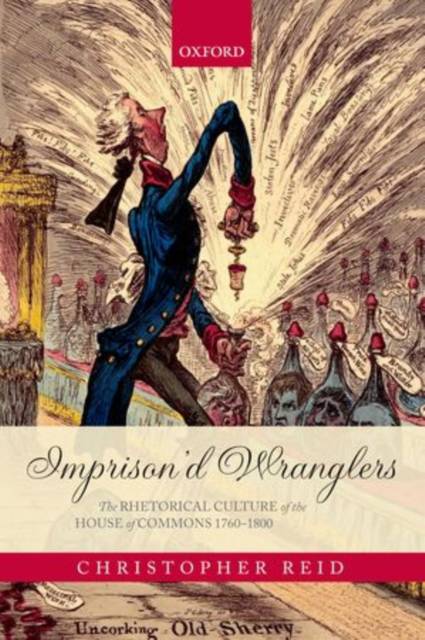
Bedankt voor het vertrouwen het afgelopen jaar! Om jou te bedanken bieden we GRATIS verzending (in België) aan op alles gedurende de hele maand januari.
- Afhalen na 1 uur in een winkel met voorraad
- In januari gratis thuislevering in België
- Ruim aanbod met 7 miljoen producten
Bedankt voor het vertrouwen het afgelopen jaar! Om jou te bedanken bieden we GRATIS verzending (in België) aan op alles gedurende de hele maand januari.
- Afhalen na 1 uur in een winkel met voorraad
- In januari gratis thuislevering in België
- Ruim aanbod met 7 miljoen producten
Zoeken
Imprison'd Wranglers
The Rhetorical Culture of the House of Commons 1760-1800
Christopher Reid
Hardcover | Engels
€ 281,95
+ 563 punten
Omschrijving
Although the later eighteenth century has long been regarded as parliamentary oratory's golden age, its speaking history remains to a large extent unexplored. Imprison'd Wranglers looks in detail at the making of a rhetorical culture inside and outside of the House of Commons during this eventful period, a time when Parliament consolidated its authority as a national institution and gained a new kind of prominence in the public eye. Drawing on a wide range of contemporary sources including newspaper reports, parliamentary diaries, memoirs, correspondence, political cartoons, and portraiture, this book reconstructs the scene in St. Stephen's Chapel, where the Commons then sat. It shows how reputations were forged and characters contested as speakers like Burke, North, Fox, and Pitt crossed swords in confrontations that were both personal and political. With close attention to the early lives of selected MPs, it pieces together the education of the parliamentary elite from their initiation as public speakers in schools, universities, and debating clubs to the moment of trial when they rose to speak in the House for the first time. Since this was the period when the newspaper reporting of parliamentary debates was first established, the book also assesses the impact speeches made on the audiences of ordinary readers outside Parliament. It explains how parliamentary speeches got into print, what was at stake politically in that process, and argues that changing conceptions of publicness in the eighteenth century altered the image of the parliamentary speaker and unsettled the traditional rhetorical culture of the House.
Specificaties
Betrokkenen
- Auteur(s):
- Uitgeverij:
Inhoud
- Aantal bladzijden:
- 286
- Taal:
- Engels
Eigenschappen
- Productcode (EAN):
- 9780199581092
- Verschijningsdatum:
- 7/02/2013
- Uitvoering:
- Hardcover
- Formaat:
- Genaaid
- Afmetingen:
- 162 mm x 240 mm
- Gewicht:
- 571 g

Alleen bij Standaard Boekhandel
+ 563 punten op je klantenkaart van Standaard Boekhandel
Beoordelingen
We publiceren alleen reviews die voldoen aan de voorwaarden voor reviews. Bekijk onze voorwaarden voor reviews.









